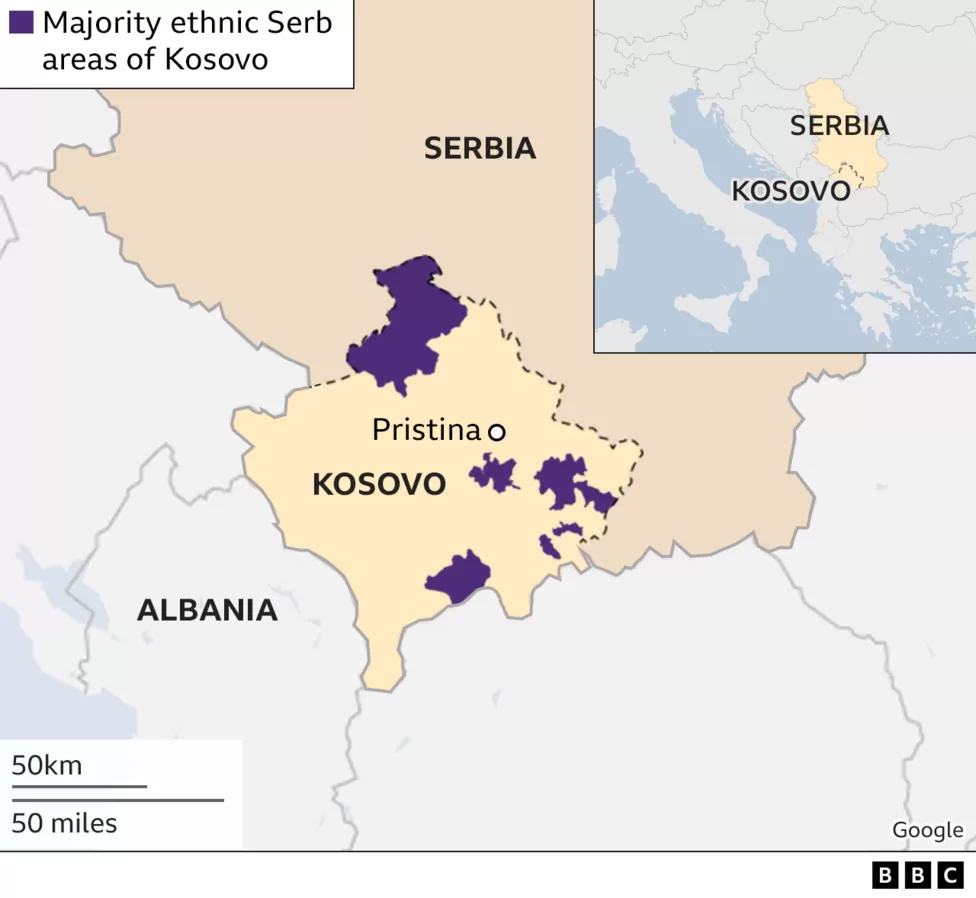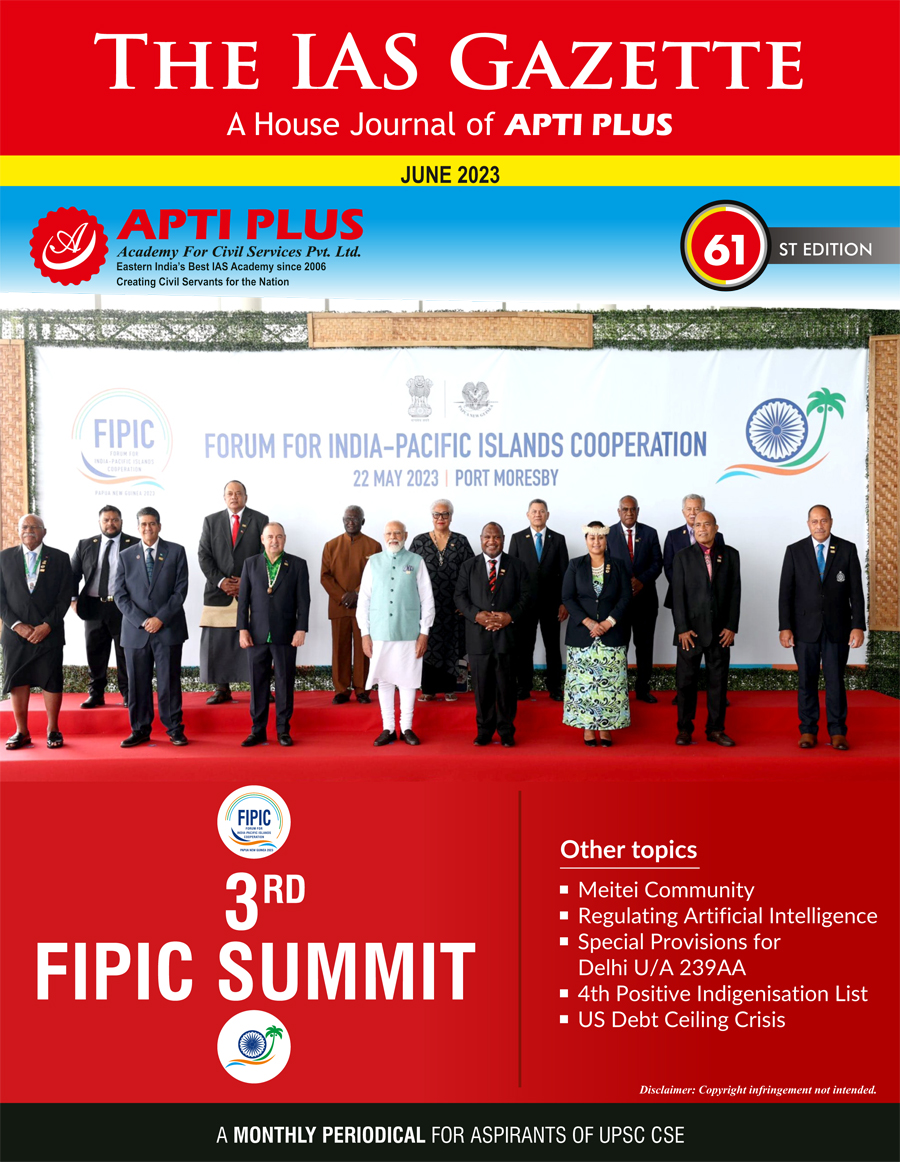Description

Disclaimer: Copyright infringement not intended.
Context
- The occurrence of violent clashes in Kosovo between ethnic Serbs and the Albanian-led government's police forces.
Details
Where is Kosovo?
- Kosovo is a small, landlocked country in the Balkans in southern-eastern Europe.
- It shares borders with Albania, North Macedonia, Montenegro, and Serbia.
- Kosovo has a population of 1.8 million people, with 92% Albanians, 6% Serbians, and the rest comprising Bosniaks, Gorans, Turks, and Roma.
Kosovo’s Independence
- After the break-up of Yugoslavia in the 1990s, Kosovo sought autonomy and independence.
- Serbia responded with a brutal crackdown against ethnic Albanians seeking independence.
- NATO conducted a bombing campaign against Serbia in 1999, resulting in Serbian forces withdrawing from Kosovo.
- The NATO-led Kosovo Force (KFor) is still present in Kosovo, with around 3,762 troops.
- In 2008, Kosovo unilaterally declared independence.
- 99 out of 193 UN countries recognize Kosovo's independence, including the US, UK, and 22 EU countries. However, Russia and China have blocked Kosovo's UN membership.
- Serbian President Aleksandar Vucic has vowed to never recognize Kosovo as an independent country.
.jpeg)
EU Aspirations
- Serbia has been a candidate country for EU membership since 2012.
- Kosovo formally applied to join the EU in December 2022.
Recent Troubles
- Relationships between the Albanian-dominated government and the Serb minority have been strained for years.
- Clashes were triggered by disputed local elections in the north of the country, boycotted by the majority Serb population.
- Ethnic Albanian mayors were elected with a turnout of less than 4% and were escorted to their offices by armed Kosovo police, leading to clashes with local Serbs.
- NATO is sending an additional 700 troops after more than 30 peacekeepers were injured.
- The US condemned the government's actions, canceled joint military activities, and put diplomatic meetings on hold.
- Serbian President Aleksandar Vucic placed the army on full combat alert and ordered units closer to the border, but he expressed a desire for a political solution.
Involvement of Russia and Serbia
- Russian Foreign Minister Sergei Lavrov expressed alarm over the tensions, warning of a potential "huge explosion" in Europe.
- Kosovo President Vjosa Osmani claimed mercenaries from Russia's Wagner Group were working with Serbian paramilitaries to smuggle weapons and uniforms into Kosovo, but there is no evidence to support these claims.
- Serbian President Aleksandar Vucic ordered the army on alert and closer to the border but also expressed a preference for a political resolution.
|
PRACTICE QUESTION
Q. The roots of the Kosovo conflict can be traced back to the days of World War 1. Discuss. (150 words)
|

https://www.bbc.com/news/62382069









